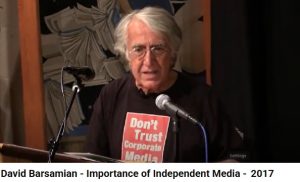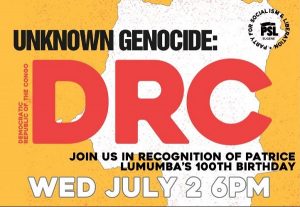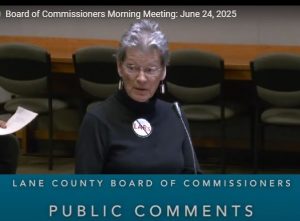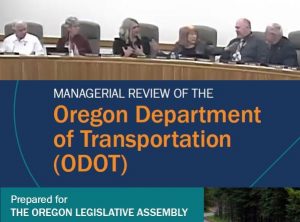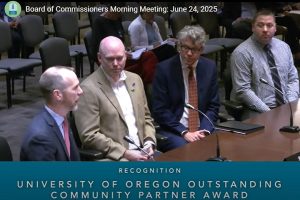NLC leaders skeptical after city fumbles 2nd neighborhood plan
9 min read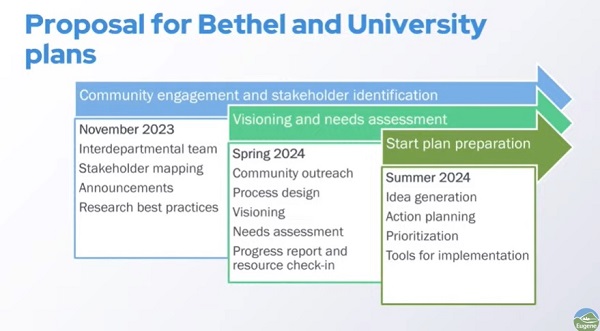
Why should neighborhood volunteers engage with the city of Eugene? That was the question from a skeptical Neighborhood Leaders Council Oct. 24. After six years and thousands of volunteer hours, the city scuttled the River Road / Santa Clara Neighborhood Plan.
[00:00:17] Rene Kane (Jefferson Westside): Why should anybody sit on their butt in a cold meeting room with stale cookies and participate? I’ve seen it, I saw it in River Road, right in the middle of their process, and I attended the Citizens Advisory Committee meeting after this was announced. People were livid. I thought people were going to get physical.
[00:00:43] I was sitting next to Jon Belcher, and I could just feel: He was mad… It created such ill will and people left the project. People who stayed were angry and are still angry.
[00:00:58] John Q: The city signed an agreement promising a specific work product, then walked away. Expressing his frustration earlier this month, River Road’s Jon Belcher.
[00:01:07] Jon Belcher (Oct. 17, 2023, at city/county public hearing): The neighborhood plan project charter signed by the two neighborhoods, and City of Eugene and Lane County, define the deliverables of this project, including a more detailed approach along the River Road corridor as informed by the related FTA TOD grant-funded project. That was not part of the plan…
[00:01:26] So the agreement from the project charter has not met River Road/Santa Clara Area Plan, and it joins the South Willamette concept plan as the second time the city of Eugene has failed to meet their promise from Envision Eugene.
[00:01:43] Jon Belcher (Oct. 24, 2023 NLC meeting): One of the promises.. in our charter was a special area zone for River Road. And city staff just basically said, ‘We’re tired. We don’t think we can do this. We’re not going to do it.’ And the charter didn’t help us there.
[00:01:58] But hopefully, if you do have a charter that has more teeth, and the support of the city council to follow through with that charter, I think it’s a wise thing to put in place.
[00:02:10] John Q: Jon said after six years of effort, the neighborhood plan was transformed into a visioning document.
[00:02:16] Jon Belcher (River Road): And unfortunately this plan is sort of half into the old world, because it is a neighborhood plan, and halfway into the new world, which, it has almost no policies that have any effect or have any mandatory application.
[00:02:33] John Q: River Road is now asking the city to retain the 1987 land use plan, because it is actually better than what the Planning Division delivered.
[00:02:42] Jon Belcher (River Road): City and county planning commissions held a public comment period. There was a lot of concern raised by the people who work around River Avenue that they’re going to be challenged by some of the proposed land use changes that we proposed there, which were basically trying to avoid auto-centric businesses. That’s likely going to change…
[00:03:10] So, I’m asking my board in our meeting tomorrow to write a letter to the city requesting that that 1987 plan’s land use diagram and the appropriate policies be moved forward until such time as a city has a parcel-specific neighborhood plan.
[00:03:29] And if you’re compelled, it would be great if you could also send your testimony to the city about the need for keeping that old planning information, and help us out.
[00:03:41] John Q: After its second failure, the Planning Division will no longer coordinate neighborhood plans. The rebranded city office responsible for community engagement will take charge, starting with Bethel and the University area. From Active Bethel Community (ABC):
[00:03:57] Tai Pruce-Zimmerman (Bethel): I’m very excited to engage in the process. But I am coming into it with a little bit of nervousness about the outcomes as well…
[00:04:07] You framed it as a visioning process, and then bringing these visions into fruition. And I guess what I’m nervous about is a distinction between vision and fantasy. I fear that we’re just going to spend some time putting together a fantasy plan and then nothing comes of it.
[00:04:28] I grew up here and left for a while, moved back in 2015, settled in Bethel and started getting active in the city. And I found the Build A Better Bethel documents and read through them. I got really excited because it was in the area I live, but everything I read through, I didn’t find anything that was happening.
[00:04:48] So I reached out to Councilor (Greg) Evans first and asked, ‘I found this document. It looks cool, but I don’t see it happening. What can I do?’ And he said, ‘Reactivate the neighborhood association.’ And that was my initial impetus to reactivate ABC.
[00:05:02] And here we are, six years from reactivating, and I still don’t really see anything from that visioning process. And I’m not sure at this time how confident I can make myself feel that this planning process as described is going to be any different.
[00:05:21] Doesn’t mean I’m not eager to do it, but I just want that out there that as we go into this, at the end of the day, what I’m hoping is to see outcomes in our neighborhood. And I’m not starting out convinced that we’re going to end there. So I’ll need some convincing that that’s going to happen as we work through the process.
[00:05:43] Carolyn Jacobs (South University Neighborhood Association): Okay, so ABC is one neighborhood association. The university area is, depending on how you count it, it’s three neighborhoods, maybe? I don’t even know if Amazon has the least bit interest or not, but we have really different issues. The things I would work on aren’t necessarily even of interest to Fairmount, or the things that concern them might be just totally irrelevant to us.
[00:06:11] So, given that we are, say, at least three neighborhood associations with only volunteer labor, I don’t quite see how it works for us. I feel like what might go on in our part of town is very different maybe than what goes on in ABC and I don’t quite see how it works.
[00:06:29] I’ve worked on land use for like 15 years, so it’s like, okay, I mean, a lot of it, the state decided, it’s done, I get it. But so: What other kinds of things might we accomplish, specific to who we are and where we are? Very few businesses (Absolutely), a school in the middle, one little park.
[00:06:50] Randy Prince (Amazon): …That vision gets put to the professionals, the staff, to look for opportunities to carry it out and everything. But I think our skepticism is: Which staff? And what are their measurements?
[00:07:05] You know, most of what we’re concerned about are land use measures, things that affect the landscape, and so: the Planning and Development Department, which tends to measure things in how many dollars were invested and how many buildings were built, property tax rates, and so on.
[00:07:20] But we’d rather have it in front of the equity department to say, ‘How diverse is the neighborhood? How affordable it is to different ages of people, different ethnic groups?’ And everything like that… How much research have you done on, you know, mobile home parks (which are one of the few affordable neighborhoods in Eugene).
[00:07:38] So, that’s our problem of why this would go nowhere, because that’s been our experience is that: Our vision has different values than the people who are reviewing it, interpreting it, and filtering about what can or can’t be done…
[00:07:50] I’m also interested in knowing whether any of this could involve things that relate to funding. For example, the West University neighborhood, I understand, had some planning in a district that was established and had links to funding to pave pedestrian ways, like the alleys and maybe some sidewalks and amenities, things like that. And particularly in the area of sidewalks, a totally neglected area of forward-thinking planning, where there’s no funding solution. So we’re looking for something there.
[00:08:29] John Q: Neighborhood leaders also raised concerns about transportation.
[00:08:35] Kay Rose (Fairmount Neighbors): I just keep having these thoughts in my head about transportation plans and all, you know, we’ve got, like, the size of the city that we’re not increasing the boundaries of, and so we’re just packing more stuff into it. And a lot of the transportation plan stuff is really focused on bikes and walking. And yet I’m looking at the weather right now and noticing that most people aren’t walking and biking at all during a big part of the year.
[00:09:01] So the climate-friendly stuff, it seems like it’s concentrating along a lot of the main corridors, so like Franklin Boulevard. You make that climate-friendly, the traffic is going to have to go somewhere else. So it just feels like a lot of this climate-friendly planning is just going to push the carbon out into our single-family neighborhoods.
[00:09:22] I keep hearing more and more people saying the same thing, you know: ‘You’re going to make one area better, and it’s going to push problems into other areas.’
[00:09:32] So hopefully they’ll keep that in mind if they’re going to reduce car traffic. And we’re losing a hospital and suddenly somebody in River Road is going to have to get to RiverBend in a hurry and the Beltline’s got an accident and how are they going to get there? Well, Franklin Boulevard is a main highway. It’s being turned into a walking area, biking area.
[00:09:56] So a lot of stuff just does seem very idealistic, that we’re going to have all these great things. But then how are you going to get from your car to pick up your elderly mom to take her to the hospital when you’ve got to go back and forth across town? So just throw that in there, keep that in your thinking, would be great.
[00:10:13] John Q: In September, neighborhood leaders asked if the city also threw away their volunteer hours on the NORP—the Neighborhood Organization Recognition Plan.
[00:10:23] Dennis Hebert (Southeast Neighbors, Sept. 26, 2023): I have a question for Fabio. Last spring we were talking about this new city process giving neighborhood associations more leeway on changing their bylaws. That was going to be approved in a few weeks and it kept on being a few weeks, a few weeks. Well, it’s now the fall. And I’m wondering: Where are we at right now with that process?
[00:10:49] Fabio Andrade (Office of Equity and Community Engagement, Sept. 26, 2023): That was part of the NORP review that we were doing last year. We did not get it done. So that process has been on pause. We have had a few conversations on how to move forward with that, so we may have more to share on that soon, but as of now, it is on pause.
[00:11:08] Dennis Hebert (Southeast Neighbors, Sept. 26, 2023): So in other words, it’s stalled. Oh, that’s a bummer.
[00:11:14] Carolyn Jacobs (South University, Sept. 26, 2023): Some of us were involved for a really long time, we worked really hard on that. And the sort of shift now to working on this stuff and not, you know, we’ve sort of lost all that work we did on the NORP.
[00:11:26] Fabio Andrade (Sept. 26, 2023): I wouldn’t say it’s lost. We have all the information. We are ready to resume as soon as it’s okay to go ahead and resume it. There are now different things that we have to address, for example, neighborhood planning and the NORP are connected because in the NORP, there’s language about neighborhood planning.
[00:11:46] There are other pieces that connect the NORP with budget requirements and policy guidance on how to remain active… and it is very complex. We suggested, I believe, over 40 policy items in the draft that we shared for comments. There were like, five or six items that there was no consensus on and the process was paused. So, as soon as we can go back, we will be rediscussing those five items and probably having something to present to council.
[00:12:23] John Q: After six years of volunteer efforts, the city scuttles another neighborhood plan. Neighborhood leaders ask the city to go back to the 1987 plan, and wonder: Is the city’s word even worth the paper it’s written on?
